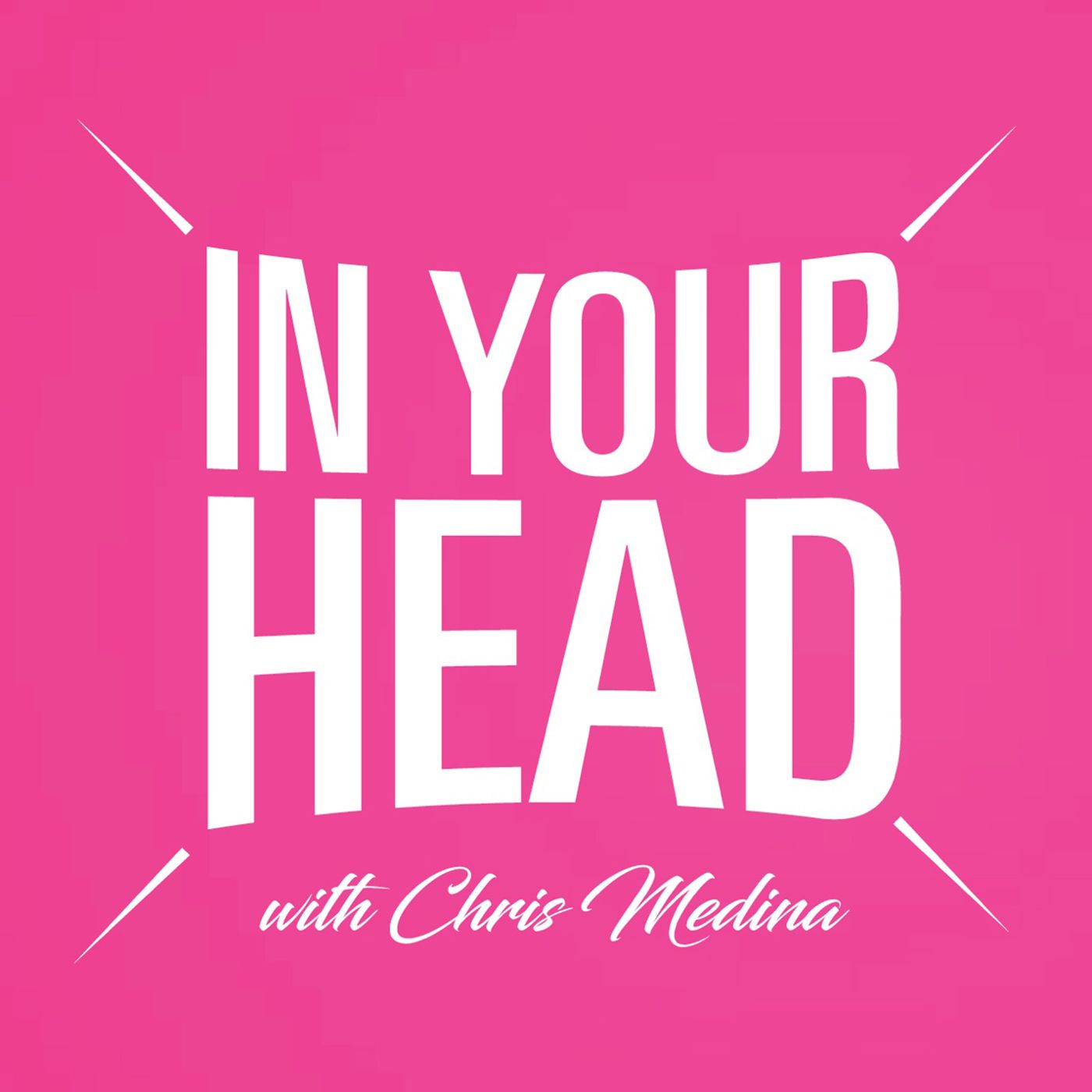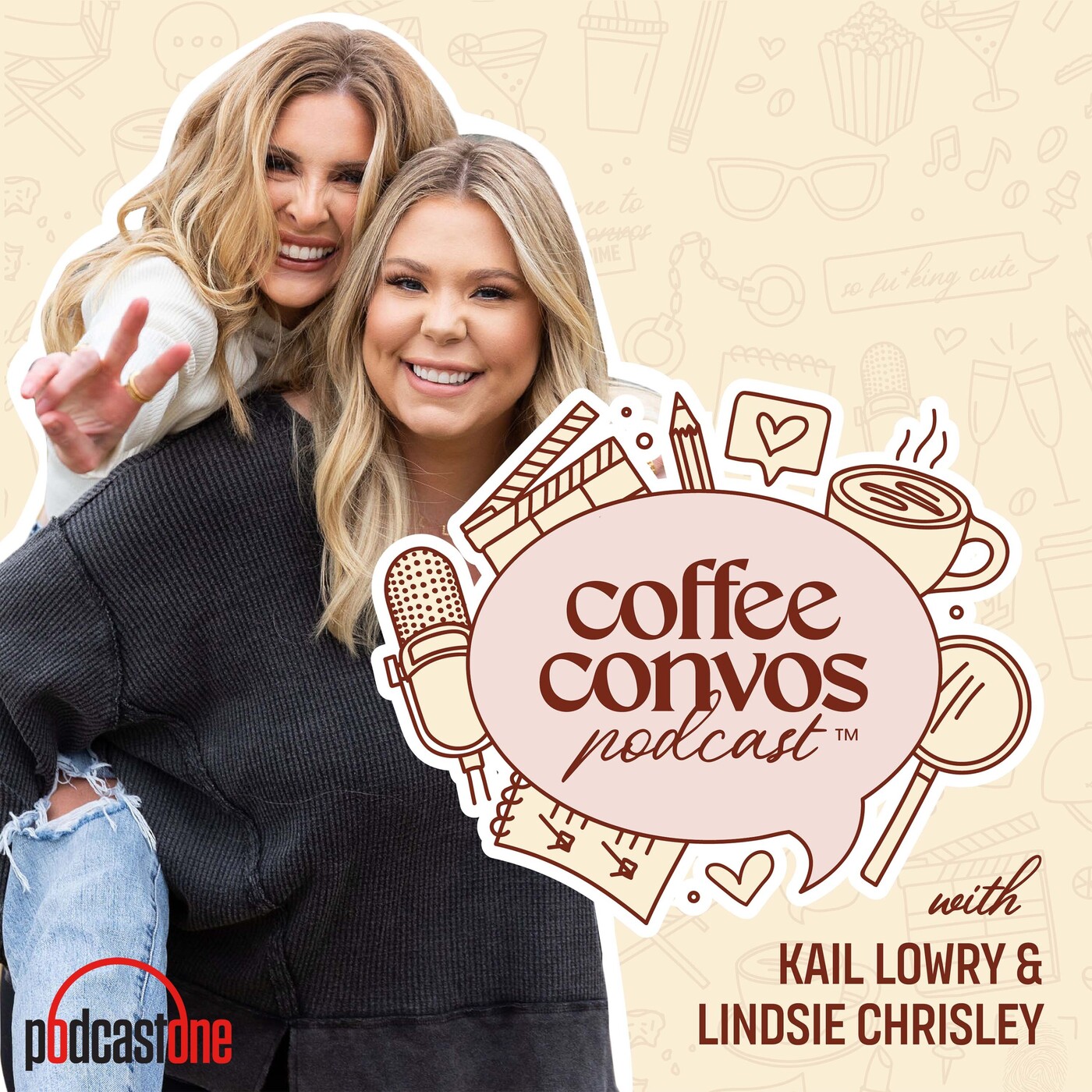
Babbles Nonsense
Welcome to my verbal diary where I want to discuss any and all things that is essentially on my mind or have wondered about. Sometimes I will be solo and then other times I will have some amazing guests to bring all different perspectives in life. The ultimate goal is to hopefully bring some joy, laughter, inspiration, education, and just maybe a little bit of entertainment. Don't forget to like, rate, and share the podcast with a friend!
Babbles Nonsense
Empowering Your Thyroid Health: Understanding, Testing, and Advocacy
#160: Ever feel like you're doing everything right, yet something still seems off? Join me as I unravel my personal journey with thyroid health and the power of self-advocacy when living a healthy lifestyle doesn't seem to cut it. We break down the complex world of thyroid function, explaining the roles of TSH, free T3, and free T4, and why a comprehensive thyroid panel is crucial for accurate diagnosis. Discover the nuances of hypothyroidism and hyperthyroidism through the inverse relationship between TSH and thyroid hormones, and learn about key tests like reverse T3 and TPO antibodies that can paint a complete picture of your thyroid health.
In this episode, we dive into the profound impact of stress on your health, particularly for those navigating thyroid issues. Explore the importance of distinguishing between normal and optimal lab ranges and the significance of free hormone levels over total levels. We touch on the autoimmune aspects of thyroid conditions such as Hashimoto's and explore strategies to manage these without medication by addressing inflammation and stress. For women in Alabama who feel unheard by their healthcare providers, I spotlight Cove Telehealth in Huntsville, a haven for specialized thyroid and hormone care. Empower yourself with the knowledge and confidence to partner with the right healthcare provider and take control of your health journey.
Find Cove here:
https://www.covetelehealthforwomen.com/
https://www.instagram.com/cove4women/
You can now send us a text to ask a question or review the show. We would love to hear from you!
Follow me on social: https://www.instagram.com/babbles_nonsense/
What is up everyone? Welcome back to another episode. Well, part two of last week's episode, where we were talking about fitness and nutrition, and in this week we're going to continue the conversation with thyroid health, hormone health, inflammation, cortisol, all the things. So if you are on that journey, then this is the episode for you. So so all right, guys. So just to say again, just to put it out there yes, I am in the medical field, but this is in no way intended to replace your doctor's advice, to tell your doctor what to do. This is just me simply talking about my journey and things that I would recommend if you were my patient, but again, not recommending this because clearly you're not in front of me, we're not having a conversation. This is just. If you've been on this journey for a long time, you feel like you're doing all the things right in your fitness and nutrition world and things just still somehow are not panning out for you, whether that be you're still not feeling like yourself, you're not losing weight, you're not. You know your skin may not look like it used to, or you're just having all these symptoms that you know your body and you're like something is not right. That's how it was for me, like my thyroid journey. I've talked about it on here. Before I had hired a fitness and nutrition coach, I was still gaining weight, my hair was falling out, I slept all the time which is not like me and I just knew my body and I knew something wasn't right. So I just kept advocating for myself and I would go to doctors and if they wouldn't listen then I would. I finally found a doctor that would. We ran some tests, lo and behold had a thyroid problem. So let's just jump into the thyroid, because that's something I'm also very passionate about. I feel like it's very underdiagnosed and under treated appropriately and at the end of this episode I will give you some. If you're in Alabama, then I have someone that I highly recommend that can help you out. But just starting out with a thyroid like again, if you've done all the things, you think something's wrong. But just starting out with a thyroid like again, if you've done all the things, you think something's wrong. If your doctor is not running a full thyroid panel, then you're not getting a full picture.
Johnna:Like most doctors, most conventional doctors are only checking a TSH, which is your thyroid stimulating hormone, and a free T4. So just a little background on the thyroid. It's kind of confusing. Stay with me. We have our thyroid stimulating hormone. That is a feedback loop to your free T3 and free T4 hormones. So what that means is your thyroid is stimulated by something in your body saying hey, we need you to produce more thyroid hormone because we're getting a little low over here. Hey, we need you to produce more thyroid hormone because we're getting a little low over here. So your TSH will then go up. So your TSH goes up because it's being stimulated and then, once your TSH goes up, it will lower your free T3 and free T4. What that means is they're inverse relationships. We want your TSH between a certain number and we want your free T3 and free T4 higher than your, not higher than your TSH. But we want the free T4 and the free T3 at the top of the range and we want the TSH at the lower end of the optimal range. So that's another thing and I'll talk about optimal in a minute.
Johnna:So, with that being said, that's how some people can kind of get a little confused on hypothyroidism, which is low thyroid, and hyperthyroidism, which is a high thyroid because of the TSH and the free T3 and the free T4 inverse relationship. So you don't have to worry about any of that. Your doctor should know that, but you do, and you should advocate for yourself if you don't feel like you're being heard. And I'm not saying to go in and be rude to your doctor by any means, I'm just saying like you can be an advocate for yourself and ask for things if you don't feel like the whole picture is being drawn. So what I would recommend for a full thyroid panel is the TSH, which is your thyroid stimulating hormone, your free T3, your free T4, a reverse T3, tpo antibodies, which tests for Hashimoto's, thyroglobulin antibodies, which tests for Graves disease and some cancers. And then I would get and that's just your thyroid labs, but then I would also get to support those labs a ferritin level, an iron level, tibc, cbc with diff, cmp, which is a complete metabolic panel, fasting insulin, hemoglobin A1C I would say cortisol, but I don't really like serum cortisol levels because it only gives you one snapshot.
Johnna:I would say cortisol, but I don't really like serum cortisol levels because it only gives you one snapshot. Um, you really need to do like a Dutch test or a saliva test to get more markers for your saliva or cortisol, because it gives you like at least four to five different points throughout the day to see if it's rising and lowering like it should, um, and then if you want like most people don't get these but it's a little bit more advanced like leptin levels, you can get leptin and ghrelin levels. That's just that. I don't know necessarily, like a lot of people don't do that. That's more of the functional side when you're trying to be like really in depth.
Johnna:But going back to the thyroid stuff, the reason why reverse T3 is so important is because if your reverse T3 is high, it's blocking your T3 hormone. And T3 hormone is very important because out of the two the T4 and the T3, your T3 is your active hormone. So it's actively what's doing all the things for the thyroid. And what is that for the thyroid? That is your metabolism, hair growth, energy, um, skin looking good. Then it also stimulates other hormones like your estrogen, your progesterone and all that. So it's basically the master gland and kind of controls everything, your mood, all the things. So you want your T3, which is your active form, which is doing all the things, to be high and working right. You want it to be working for you.
Johnna:So the theory that a lot of conventional doctors follow is that you don't need t3 medication or we don't need to test the t3 because t4, which is your inactive hormone, should and will convert to t3. That that is what. That is what is supposed to happen in your body. Your body is supposed to convert inactive t4 to active T3. But what a lot of people have learned recently in research studies is that there is a lot of people that are having converting problems, like we're not able to convert the T4 to the T3. And so we're having symptoms of hypothyroidism, which is constipation, dry skin, brittle nails, hair loss, weight gain, low energy, low libido, and we're having an epidemic of these symptoms.
Johnna:But the doctor tests the TSH and the free T4 and they're normal. But if you don't check the whole picture, then how do we know what else is going on? That was what happened to me. Those are the only two labs that got tested. And then finally got a doctor that tested my T3 levels and they were zero only two labs that got tested. And then finally got a doctor that tested my T3 levels and they were zero. So sent me to Vanderbilt to a specialist. They were like wow, I've never seen a patient like this, where they don't invert the labs, and I was just like well, here I am, can I have some T3 medication now? Um, but why the reverse T3 is so important is because that reverse T3 is like a stress response hormone If it's high, it's going to block your active form of T3. And if we're blocking our active form of T3, it doesn't matter how much you're converting T4 to T3. It doesn't matter how much T3 medication you're taking, it's just not going to absorb and you're still going to have the hypothyroid symptoms.
Johnna:I'm not going to get into all the other details of the reverse T3. That's just the basic of it. But essentially the way it was explained to me was think about it. If you heaven forbid we're in a car wreck and you're laying in the ICU and you're on a ventilator, your body is going to raise the reverse T3 because it does want to block your active form of thyroid medicine.
Johnna:Because when you're sitting in an ICU bed on a ventilator, your job is to survive. Your job is to get better. So it doesn't need to grow your hair, it doesn't need to grow your nails, your skin doesn't need to look good, you don't need to lose weight. Those would be bad things. For you to heal Like you actually need to gain weight, you need more protein, you need more calories to survive, something like that. So your body doesn't know if you're in that type of stress response versus at a very high stress job.
Johnna:Does that mean I'm hoping that's making sense? Um, but that's how it was explained to me one time and I was like, oh, that makes so much sense. So if you're not getting those labs, it's not really going to give you a full picture. And I know that some insurances don't pay for all those labs. So it can kind of be a little bit cumbersome to not only have to have the responsibility of advocating for yourself but also financial burden when it comes to lab draws and things like that. And I completely understand and I empathize, but I do think it's very important.
Johnna:And then, if you're a woman, I also recommend testing your progesterone, estrogen and testosterone levels, both free and total testosterone. And that's what the same with the thyroid labs, like some doctors will only test the total T3 and the total T4, which is okay, but without the free, then we don't really know. Oh, and I forgot to add sex hormone binding globulin. That's also important because you can and I want to separate, like if you're on thyroid medication, the sex hormone binding globulin is very important because if you're taking thyroid hormone and your sex hormone binding globulin is high, then you may not be binding your hormone to other receptor sites, which I'm not trying to get too like in depth here to make anyone confused. I want to try to keep it as simple as possible.
Johnna:But going back to the totals, like total T3, total T4, total testosterone, that's what you total have in your body, right, like okay, let's make up arbitrary numbers here. Let's say my total testosterone is 100. That's what's floating around in my's. Say my total testosterone is 100, that's what's floating around in my body, but that doesn't mean that that is what is available to my cell receptors. So that's where the frees come in, like free t3, free t4, free testosterone. Your frees are what is readily available to attach to a receptor binding site in your body, in the cell. Now it could go to the binding side of the sex hormone binding globulin and then you're still not getting enough. But again, I digress, that's more advanced for another day.
Johnna:But if you are on thyroid hormone and you are still experiencing symptoms of hypothyroidism and I speak more about hypothyroidism because it's more common, but there are people out there that are hyperthyroid. Again, I speak more on the hypothyroid part, but just because it's more common. So you could still have symptoms of hypothyroidism and be on thyroid medication. Most of the time it's a T4 only medication like levothyroxine, Synthroid, and people are like why am I still having symptoms?
Johnna:My doctor says my TSH and my thyroid labs are normal and again, there is a difference between normal labs and optimal labs. And so normal labs are the reference range. Like I'm sure we've all seen a lab and we've seen a reference range. And let's say I think the don't quote me on this, but the TSH reference range is 0.5 to, I want to say, five. I think that's the most standard. Each lab value, each lab differs a little bit, but it's like 0.5 to five. And what a reference range is is they've taken anyone from the age I want to say 17 to 99. They could have changed it since the last time I looked it up. So anyone from the age of 17 to 99, they've done all this collective data and here's the reference range they came up with. I don't know about you, but I don't want my thyroid at age 37 to be the same as a 99 year olds. I want it to be closer to my age or a little bit younger, younger to feel optimal. So then they came up with the optimal range where more functional doctors practice and live in and say that you will feel optimally better if it's between this range and I think with the TSH again, don't quote me is 0.5 to 2. So there's a big discrepancy between that 2 and 5.
Johnna:I know when I got diagnosed with my thyroid issues my TSH was only like 3, 3.5. It was still in that quote, unquote normal range but it was higher than the optimal range. But then when they checked my T4, I think it was a little low. And then again I had to beg to get my T3 tested and when they tested my T3, it was zero. And that's when they sent me to that specialist, like I said at Vanderbilt, and she was like, if your T3 is zero, which and?
Johnna:Um, there's a whole gamut of things between like all that we won't go into, but going back to that Um, so a lot of people can have like optimal levels of thyroid functioning. But there are TPO antibodies which checks for Hashimoto's um, which is the auto immune portion of the thyroid. They can be high and you could just be in a state where you just need to get your inflammation under control and then your thyroid still functioning appropriately, and if you could get that inflammation, that stress, under control, you don't need medication. And so there's a whole different pathway that you could go there. But again, this is to keep it as simple as possible.
Johnna:I do recommend working with someone obviously advocating for yourself and just listening to your body and yeah, I'll, I'll leave it there.
Johnna:But if you don't have a doctor and you're in Alabama, or you do have a doctor but you don't feel like you're, you know, being heard or listened to, then I really highly recommend Cove telehealth for women here in Huntsville.
Johnna:Um, it's all telehealth, but she, she has a license in Alabama, so highly recommend you reaching out to them. They're specializing in thyroid and hormone health for women and I just think they're wonderful. I will link their tag in the show notes so that you can just click on it and go there if you're struggling or have any questions. But again, again, this is not intended to give any medical advice, just to kind of put it out there on what you should maybe ask for if you're experiencing these symptoms and continue to advocate for, advocate for yourself, because that is what healthcare is about is, you know, partnering with a doctor and you knowing your body and them knowing the knowledge of medicine and just bringing it together. So I hope this was helpful and not too confusing. I try to not to make it too confusing. But anyways, guys, until next time. Bye, thank you.









